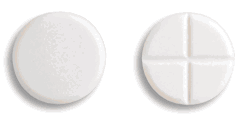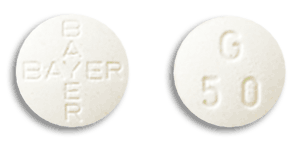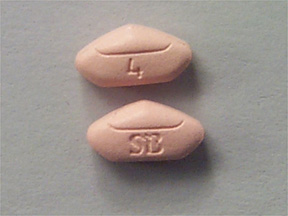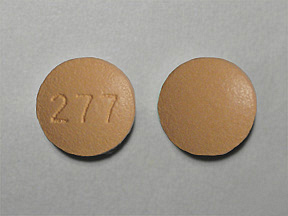Introduction
Diabetes Mellitus, or commonly referred to as Diabetes, is a disease associated with an abnormally high blood sugar level. Diabetes occurs when insulin produced by a person’s body is insufficient, or body is unable to use the insulin properly. Insulin is a hormone produced in human’s body by an organ called pancreas. It acts as a “key” to control blood sugar level so that it always stays within a normal range. When there’s insufficient insulin production or insulin is not being used properly, sugar is not able to be transferred into body cells and tissues, resulting in an increasingly high sugar level.
There are two types of Diabetes, namely Insulin-dependent Diabetes Mellitus (Type 1) and Insulin-independent Diabetes Mellitus (Type 2). In a type 1 Diabetes patient, the body is not producing insulin at all, whereas in type 2 Diabetes the insulin is either not sufficiently produced by the body, or the body does not use the insulin properly (insulin resistance).
Diabetes symptoms
A person with Diabetes will experience symptoms such as fatigue, feeling thirsty, frequent urination, wounds that are slow to heal, and unexplained weight loss although he or she is having normal appetite. Anyone who has faced symptoms as above should refer to nearest clinic for professional advice and blood tests as soon as possible.
Complications
High blood sugar level, if left untreated, can results in blood vessels and nerve damages. This will furthermore lead to Diabetes complications such as heart attack, stroke, blurring of vision or blindness, numbness or loss of sensation at hands and feet, and the last but not least, kidneys failure.
Treatment
Diabetes Mellitus cannot be cured, but it can get under control with medicine and lifestyle modification. There are many treatments available for Diabetes patients, in a form of oral medications, insulin injections, or both depending on the blood sugar level.
1) Oral antidiabetes medications
|
No.
|
Classes of medication
|
Action
|
Example
|
Image
|
|---|---|---|---|---|
| a) | Biguanide |
|
Metformin |
|
| b) | Sulphonylureas |
|
Glibenclamide, Glicazide |
|
| c) | a- Glucosidase Inhibitor | Controlling the increasing level of blood sugarl after meals by blocking the digestion and absorption of carbohydrates from the intestine. | Acarbose |
|
| d) | Thiazolidinedione | Increasing body sensitivity towards insulin. | Rosiglitazone, Pioglitazone |
|
| e) | DPP-4 inhibitor | Prolonging the effect of the hormone GLP-1, a hormone that stimulates insulin production when there is a rise in blood sugar level after meal. | Sitagliptin, Saxagliptin, Linagliptin, Vildagliptin |
|
2) Insulin injection
Insulin injection is usually offered when treatment with oral anti diabetes medications are insufficient to bring blood sugar level down to normal range, or when oral anti diabetes medications cannot be given. Examples of individuals that cannot be given oral anti diabetes medications are pregnant women or patients with kidney failure. Insulin injection lowers blood sugar level by mimicking the actions of naturally occurring insulin in our body. There are a few types of insulin available, and the choice of insulin is depending on individual need.
The chart below shows different types of insulin according to their duration of actions:
|
No.
|
Types of insulin
|
Example
|
Injection timing
|
|---|---|---|---|
| a) | Rapid-acting insulin | Insulin aspart (Novorapid®), Insulin lispro (Humalog®) |
Immediately before meal |
| b) | Short-acting insulin | Regular Insulin (Actrapid®, Insuman Rapid®) |
30 minutes before meal |
| c) | Intermediate-acting insulin | Isophane insulin (Insulatard®, Insuman Basal®) | Before bedtime |
| d) | Long-acting insulin | Insulin determir (Levemir®) Insulin glargine (Lantus®) |
Same time everyday |
| e) | Premixed insulin | Novomix 30®Mixtard, Insuman Comb30® |
Immediate before meal 30 minutes before meal |
Importance of compliance to anti diabetes medications
Anti diabetes medications are used to control blood sugar level to keep it within a normal range, but they can’t cure diabetes. Thus, anti diabetes medications must be continued for life-long. Compliance to anti diabetes medications in term of dose and timing is crucial as overdosing will cause an undesirably low low sugar level (hypoglycemia), whereas under-dosing will results in an undesirably high sugar level (hyperglycemia). Uncontrolled blood sugar level will results in diabetes complications such as kidney failure and heart attack. Diabetes patients should always refer to their doctor, pharmacist or diabetes nurse educator so that they encounter any problem with their medication.
References
- American Diabetes Association http://www.diabetes.org/living-with-diabetes/treatment-and-care/medication/
- NPS Medicinewise http://www.nps.org.au/
| Last Reviewed | : | 27 October 2017 |
| Writer/Translator | : | Lee Chia Kee |
| Accreditor | : | Nor Aida bt. Sanusi |


 Metformin 500mg tablet
Metformin 500mg tablet Glibenclamide 5mg tablet
Glibenclamide 5mg tablet Gliclazide 80mg
Gliclazide 80mg Acarbose (Glucobay®) 50mg
Acarbose (Glucobay®) 50mg Rosiglitazone (Avandia®) 4mg
Rosiglitazone (Avandia®) 4mg Sitagliptin (Januvia®) 100mg
Sitagliptin (Januvia®) 100mg




